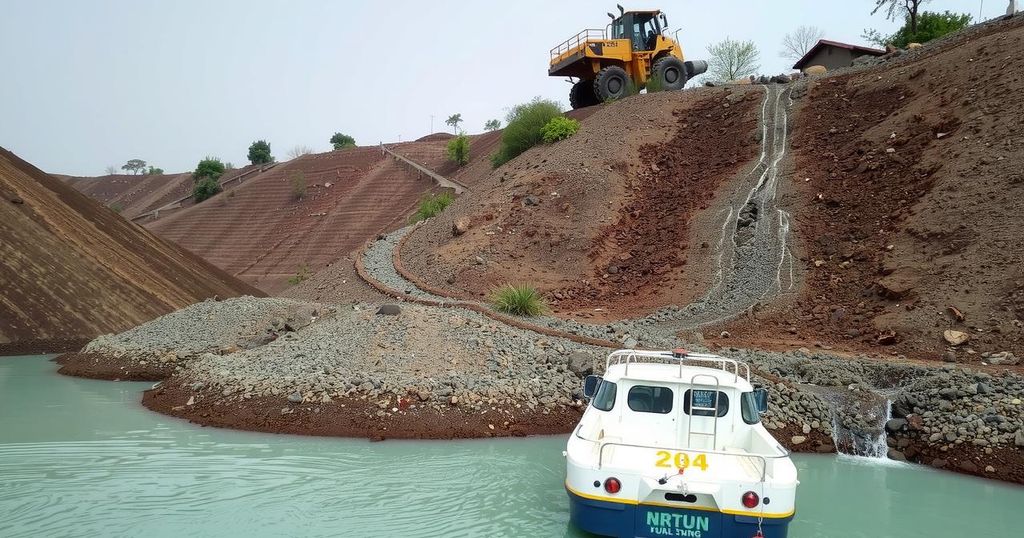Nigeria has lifted a five-year ban on mining in Zamfara State due to improved security measures. This decision aims to restore legal mining, promote revenue diversification from the oil sector, and curb illegal activities. The government is also establishing reforms and international partnerships to strengthen the mining industry and enhance its contribution to the economy.
Nigeria has officially reinstated mining operations in Zamfara State, lifting a five-year suspension that was initially enacted in 2019 due to heightened banditry and violence in the region. This decision marks a pivotal change for the nation’s mining industry, particularly in an area rich in minerals such as gold, lithium, and copper. Dele Alake, the Minister of Mines and Steel Development, emphasized that improved security measures facilitated this development, with a focus on reducing illegal mining activities that thrived during the ban.
The ban in Zamfara had devastated the legal mining sector and fueled underground operations that complicated efforts to maintain law and order. The newly reinstated mining operations are expected to contribute positively to Nigeria’s revenue, paving the way for economic diversification beyond the oil sector, which currently dominates the country. To bolster the mining sector, Nigeria is implementing reforms such as the establishment of a national mining company, revocation of unused mining licenses, and strong policies aimed at enhancing mineral processing within the country.
Furthermore, the government seeks international collaboration to enhance both technical and financial facets of mining. Recent agreements with France, Germany, and Australia indicate a commitment to building capacity in the sector, which is crucial for Nigeria’s future economic landscape. The combined efforts of security improvements and regulatory reforms illustrate the nation’s determination to rejuvenate the mining industry, offering hope for substantial contributions to its economy in the years to come.
Zamfara State, located in northwestern Nigeria, is known for its abundant mineral deposits, including gold, lithium, and copper. In 2019, the Nigerian government enforced a ban on mining activities in the state as a consequence of rampant banditry, kidnapping, and violence that severely undermined security. The suspension hindered legitimate mining operations and resulted in a surge of illegal mining activities, which exacerbated the security challenges in the region. The recent lifting of the ban follows a significant improvement in security measures, which the government believes will help restore order and proper governance over mining operations while contributing to economic diversification.
In conclusion, the lifting of the mining suspension in Zamfara State represents a strategic move by the Nigerian government to revitalize the mining industry and reduce dependency on oil exports. The government’s proactive approach, highlighted by enhanced security measures and international partnerships, aims to reinstate order in the sector while promoting economic growth through reform and diversification. As these initiatives unfold, they hold the promise of significant contributions to Nigeria’s economic landscape, particularly if supported by ongoing improvements in security and regulatory compliance.
Original Source: www.chemanalyst.com






